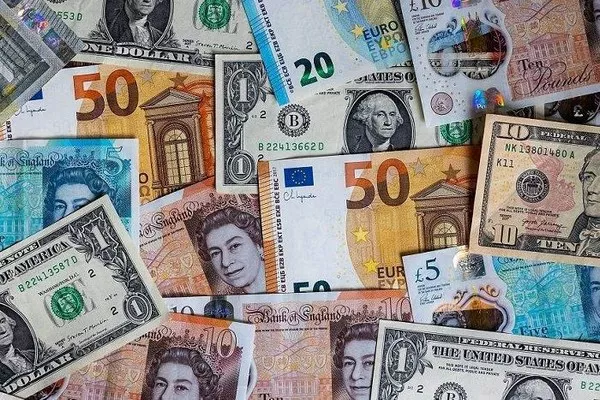The pound sterling has been one of the world’s most traded currencies, with a long history dating back to the 12th century. However, in recent months, it has experienced a significant decline in value against major currencies such as the US dollar and the euro. In this article, we will explore the various factors that have contributed to this decline.
Brexit Uncertainty
One of the main reasons why the pound is going down is Brexit uncertainty. The UK’s decision to leave the European Union (EU) has been a contentious issue since the referendum in 2016. Negotiations between the UK and the EU have been ongoing for years, and there is still no clear agreement on key issues such as trade and immigration.
This uncertainty has created a lot of volatility in the markets, causing investors to become nervous about the future of the UK economy. As a result, they have been moving their investments out of the pound and into other currencies that are perceived as more stable, such as the US dollar and the euro.
Inflationary Pressures
Another significant factor contributing to the decline in the pound is inflationary pressures. Inflation measures the rate at which prices of goods and services are increasing over time. When inflation is high, the purchasing power of a currency decreases, meaning that goods and services become more expensive.
In recent months, the UK has seen a rise in inflation due to several factors such as supply chain disruptions caused by the pandemic, higher commodity prices, and Brexit-related uncertainties. These inflationary pressures have eroded the value of the pound, making it less attractive to investors.
Central Bank Policy
The policies of central banks can also influence the value of a currency. In the case of the pound, the Bank of England’s (BoE) monetary policy has been a factor contributing to its decline. The BoE has kept interest rates low to support economic growth, but this has also made the pound less attractive to investors seeking higher returns.
Furthermore, the BoE has been expanding its balance sheet through quantitative easing (QE) programs, which involve buying assets such as government bonds to inject liquidity into the economy. This also puts downward pressure on the pound’s value, as it increases the supply of the currency in circulation.
Political Instability
Political instability is another factor that can impact a currency’s value. In the case of the UK, political uncertainty surrounding Brexit negotiations and changes in leadership have contributed to the pound’s decline.
For example, when Prime Minister Theresa May resigned in 2019, there was a lot of uncertainty about who would succeed her and what their approach to Brexit would be. This uncertainty led to a fall in the pound’s value, as investors worried about the potential impact of a new leader’s policies on the economy.
COVID-19 Pandemic
Finally, the COVID-19 pandemic has had a significant impact on the UK economy and the pound’s value. The pandemic has caused disruptions to global trade, reduced consumer spending, and led to job losses.
The UK has also struggled to contain the virus, with several lockdowns and restrictions on business operations. These measures have led to reduced economic activity, further impacting the pound’s value.
Conclusion
In summary, there are various factors contributing to the pound’s decline in value, including Brexit uncertainty, inflationary pressures, central bank policy, political instability, and the COVID-19 pandemic. While some of these factors may be temporary, others may have longer-term effects on the pound’s value.
As always, it is important to remember that currencies are subject to fluctuation, and their value can rise or fall rapidly depending on market conditions. Therefore, investors should exercise caution and seek professional advice before making any investment decisions involving currencies like the pound.


